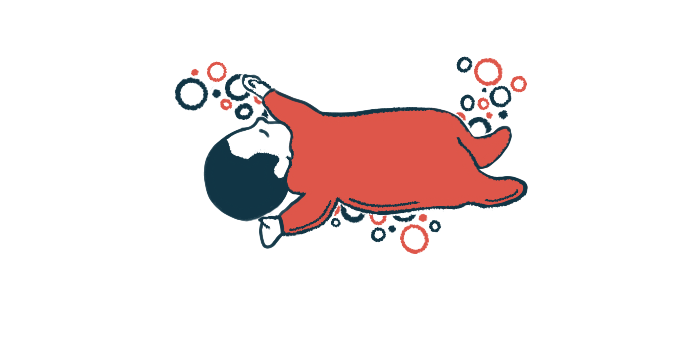Human milk boosts nutritional status of infant with SMA type 1
Researchers call for more studies about how human milk products may be used
Written by |

An intervention based on giving human milk instead of formula helped to improve the nutritional status of a baby with spinal muscular atrophy (SMA) type 1, a new study reports.
“Within days of introducing the [human milk] derived diet as a supplement to his formula diet, [the patient] improved feeding tolerance and growth parameters,” researchers wrote in the study, “Malnutrition in SMA Type I: Case Report of a Novel Nutritional Intervention with Improved Growth and Function While Receiving Parallel Gene Splicing Therapies,” published in Pediatric Neurology.
“Further research in the use of nutritive therapies and [human milk] based products is warranted in the SMA patient population,” the researchers said.
In babies with SMA type 1, one of the first early symptoms of the disease often is difficulty feeding, which can make it hard for the baby to get enough nutrition to support proper growth.
Here a team led by researchers in Egypt described the case of a child who started to have feeding difficulties at around 3 months of age. Testing eventually confirmed a diagnosis of SMA type 1, and the baby was transferred to a specialty center for care. At about 1 year old, the child was started on simultaneous treatment with Spinraza (nusinersen) and Evrysdi (risdiplam).
During the hospital stay, the child was fed via nasogastric tube (a tube that goes through the nose to deliver food into the stomach). The child originally was given formula, but this diet caused digestive problems including abdominal bloating, vomiting, and diarrhea. These complications caused problems with feeding, requiring some nutrition to be given directly into the bloodstream, but the child still failed to gain adequate weight.
Tests of the baby’s stool revealed high levels of an inflammatory marker called calprotectin, suggesting that these issues may be due to inflammation in the baby’s guts.
The child was started on an intervention where formula was replaced in some feeds with a product made from pasteurized human milk collected from donors.
Prolacta Bioscience products used in study
Specifically, a human milk formula sold as Prolacta Ready to Feed was used, and it was supplemented with additional human milk fats (sold as Prolacta CR). These products are sold by Prolacta Bioscience, which was not directly involved in this study, though one of the co-authors disclosed having received payment from the company previously for medical writing services.
Within a week of starting on the human milk-based intervention, the child’s condition improved markedly, with resolution of digestive symptoms and reductions in fecal calprotectin levels. The child’s growth also improved dramatically. The child then was weaned off human milk and transitioned back to an all-formula diet within a few months, without further nutritional issues.
Promoting a more normal microbiome
The researchers speculated that the gut inflammation in this child may have been due to dysregulation of the gut microbiome — the community of bacteria and other microbes that make their home in the human digestive system. They suggested that the switch to human milk may have promoted a more normal microbiome, allowing better nutritional absorption.
But, the researchers acknowledged, it is difficult to draw clear conclusions about cause-and-effect from this case, especially since the child was starting on SMA treatment at around the same time the nutritional intervention was given. The team called for further studies into how human milk products may be used to best support the nutritional needs of people with SMA.




